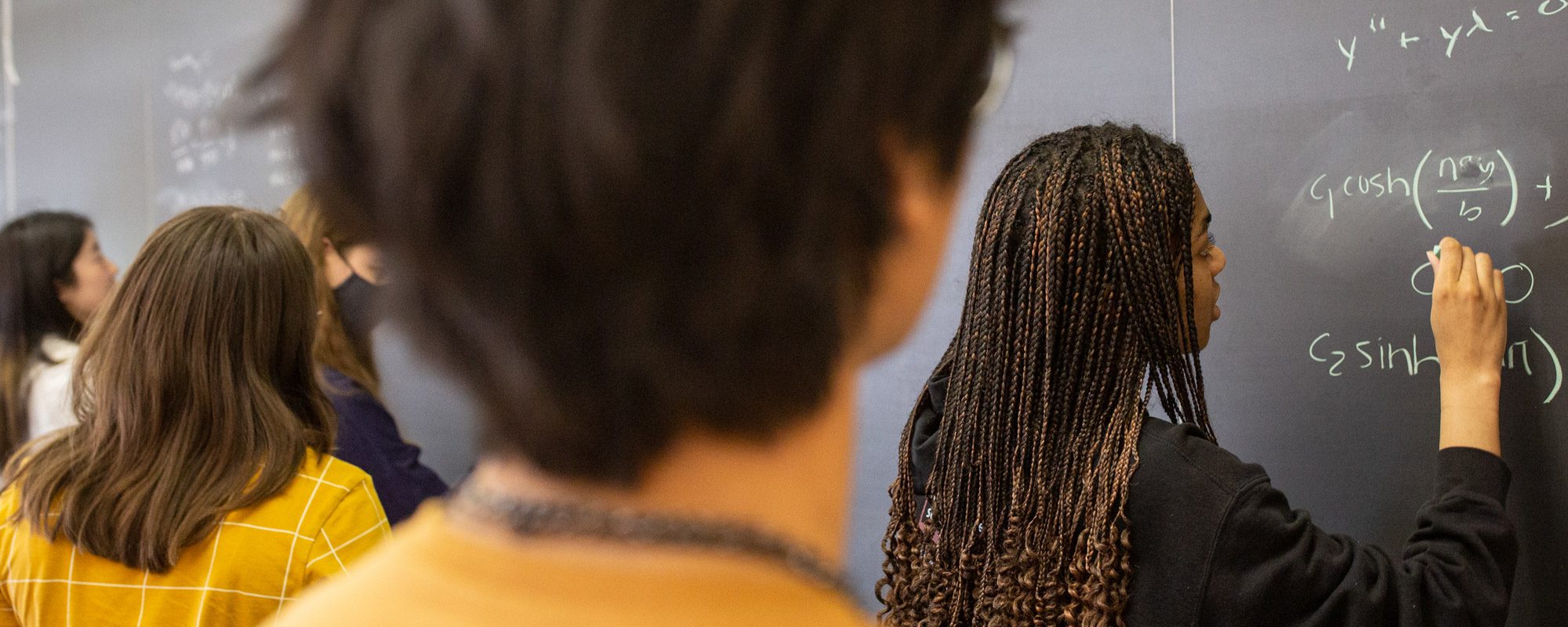Page Contents
What Do Academic Excellence Workshops Offer?
Our program is based on research showing that collaborative learning (as opposed to an individual, competitive approach to learning) promotes higher grades, greater persistence, deeper comprehension, more enjoyment in learning, and more positive attitudes toward academic work.
-
Peer Facilitation
Work with undergraduates who have previously taken the course.
-
Community Building
Join a group of students who are enrolled in the same courses.
-
Interactivity
Review lecture material in an engaging, collaborative way.
-
Getting Ahead
Groups work on problems at or above the level of course instruction.
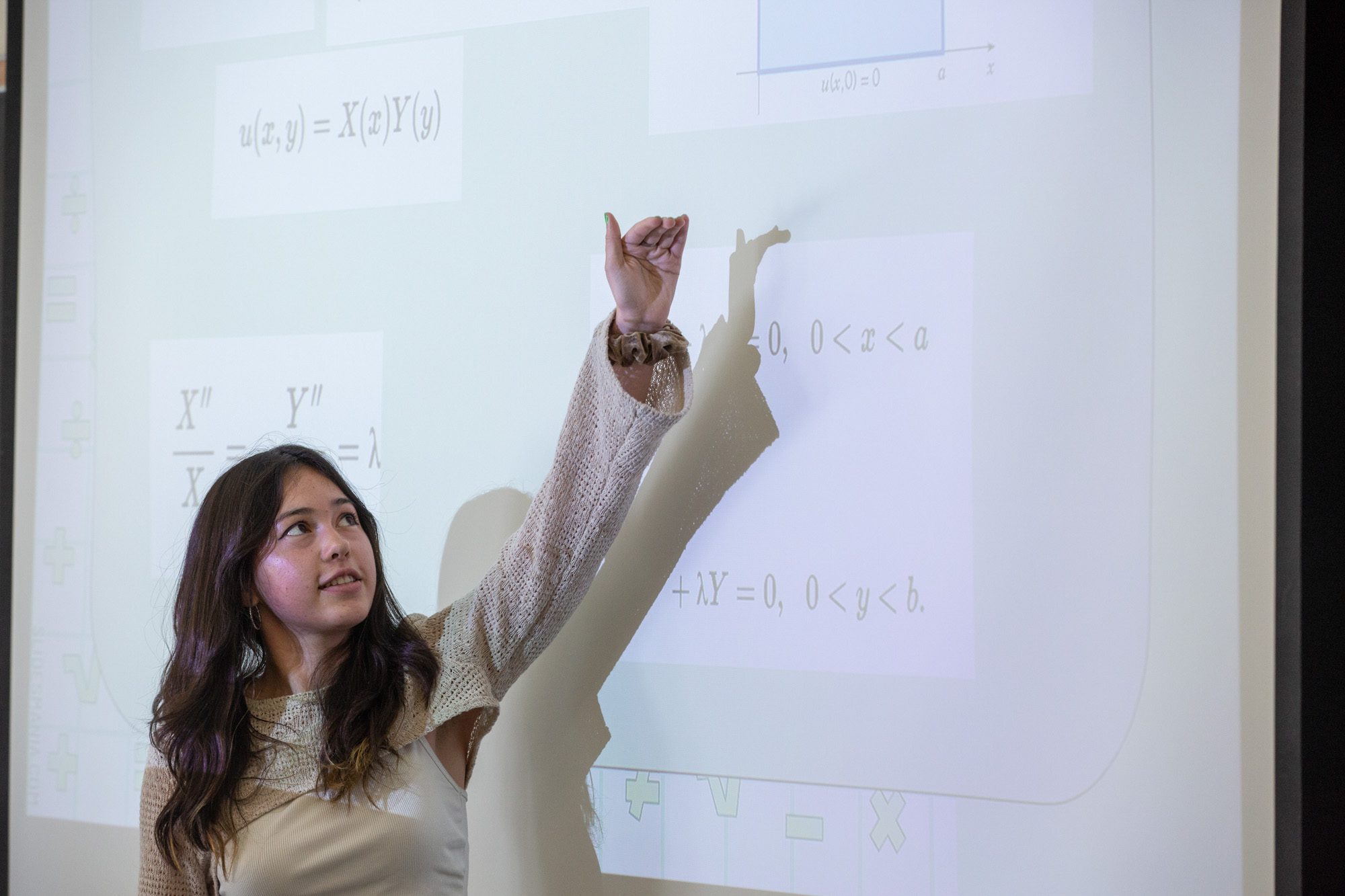
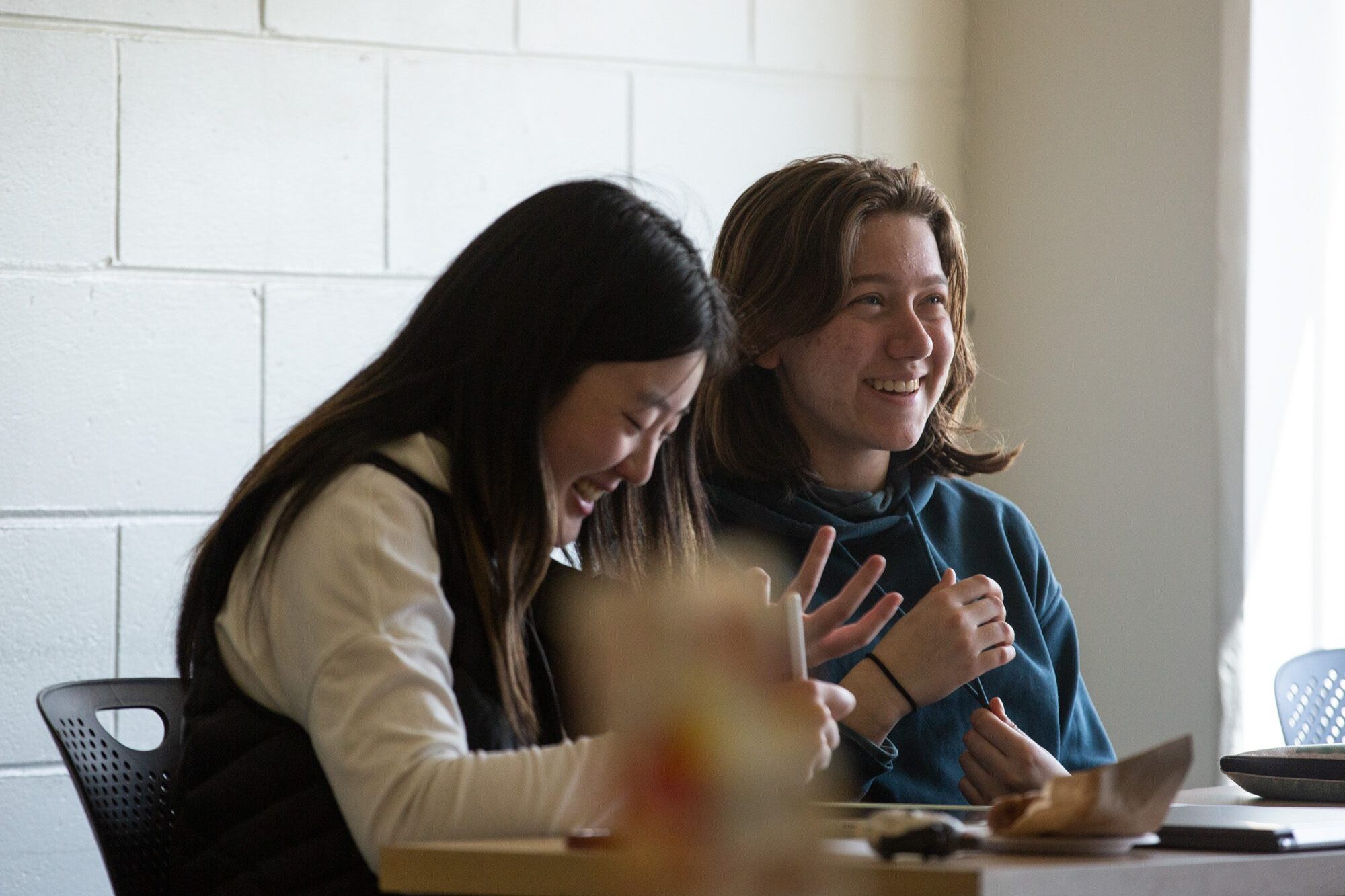
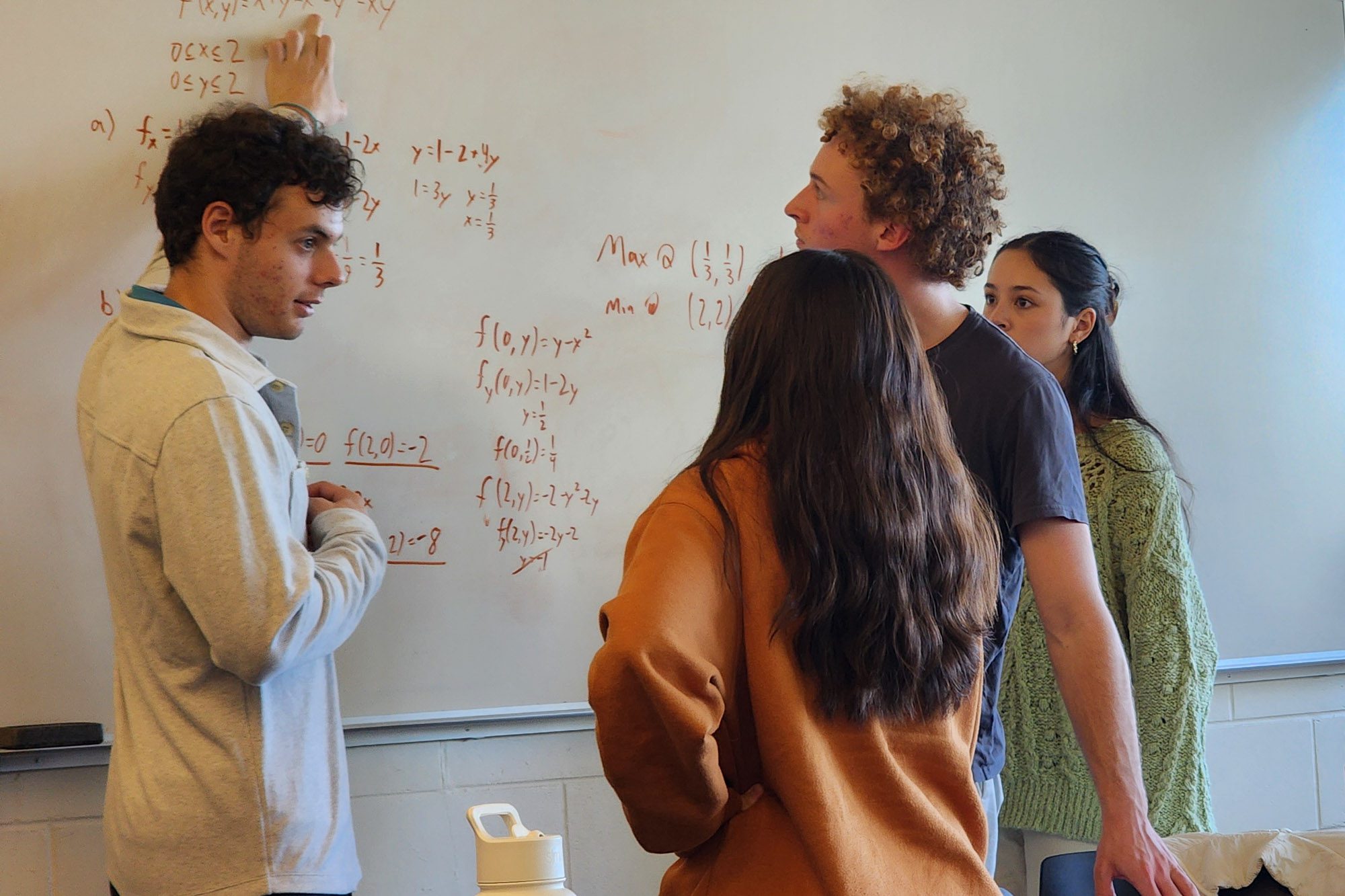
Courses and Enrollment
Any student enrolled in the corresponding lecture class can enroll in an Academic Excellence Workshop. Find them under the ENGRG course code and enroll through your student center. The workshops function as one-credit courses and are graded S/U based on attendance. Whose who miss more than three workshops, including sessions missed due to late enrollment, will receive a U grade.
For current course offerings and schedules, visit courses.cornell.edu.
For the Fall 2025 semester, Academic Excellence Workshops are in place for the following classes, with corresponding course numbers and times listed below:
-
CHEM 2090
ENGRG 1009 is offered:
- Monday 2:30-4:25 p.m.
- Monday 7:30-9:25 p.m.
- Tuesday 10:10-12:05 p.m.
- Tuesday 12:20-2:15 p.m.
- Wednesday 2:30-4:25 p.m.
- Wednesday 7:30-9:25 p.m.
- Thursday 2:30-4:25 p.m.
-
CS 1110
ENGRG 1010 is offered:
- Tuesday 2:30-4:25 p.m.
- Wednesday 7:30-9:25 p.m.
- Thursday 12:20-2:15 p.m.
-
CS 1112
ENGRG 1012 is offered:
- Monday 7:30-9:25 p.m.
-
CS 2110
ENGRG 1011 is offered:
- Wednesday 7:30-9:25 p.m.
- Friday 2:30-4:25 p.m.
-
CS 2800
ENGRG 1028 is offered:
- Monday 7:30-9:25 p.m.
- Thursday 2:30-4:25 p.m.
- Friday 12:20-2:15 p.m.
-
CS 3110
ENGRG 1031 is offered:
- Thursday 10:10-12:05 p.m.
-
CS 3410
ENGRG 1034 is offered:
- Wednesday 7:30-9:25 p.m.
-
ENGRD 2020
ENGRG 1002 is offered:
- Tuesday 2:30-4:25 p.m.
- Friday 2:30-4:25 p.m.
-
MATH 1910
ENGRG 1091 is offered:
- Monday 2:30-4:25 p.m.
- Monday 7:30-9:25 p.m.
- Wednesday 7:30-9:25 p.m.
- Friday 2:30-4:25 p.m.
-
MATH 1920
ENGRG 1092 is offered:
- Monday 7:30-9:25 p.m.
- Tuesday 2:30-4:25 p.m.
- Wednesday 2:30-4:25 p.m.
- Thursday 12:20-2:15 p.m.
- Friday 10:10-12:05 p.m.
- Friday 2:30-4:25 p.m.
-
MATH 2930
ENGRG 1093 is offered:
- Monday 2:30-4:25 p.m.
- Monday 7:30-9:25 p.m.
- Thursday 2:30-4:25 p.m.
-
MATH 2940
ENGRG 1094 is offered:
- Monday 2:30-4:25 p.m.
- Friday 2:30-4:25 p.m.
Send Questions To:
inclusive_excellence@engineering.cornell.edu
“I really like being able to ask questions. My facilitators are very approachable, and they help me work through the problems I do not understand. Also, the extra practice is good for me.”
Academic Excellence Workshop Participant
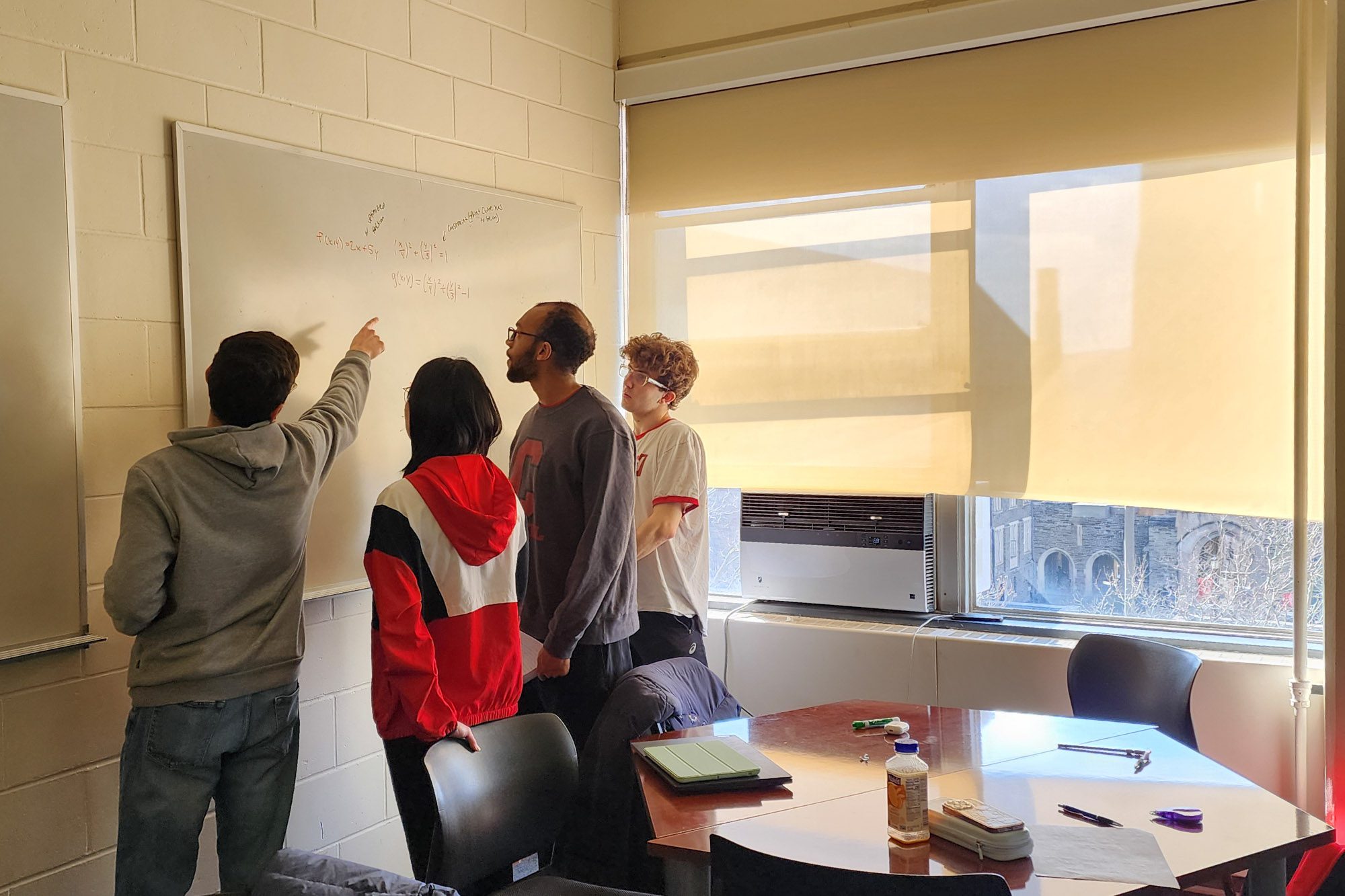
How to Make the Most of Academic Excellence Workshops
-
Arrive on Time
Don’t come in late.
-
Introduce Yourself
Make sure the facilitator knows who you are.
-
Actively Participate in Your Group
Don’t just sit there.
-
Make Certain Your Attendance is Recorded
Be sure you get credit for showing up.
-
Stay Until the End of the Workshop
Plan your schedule accordingly.
-
Provide Advance Notice for Absences
If you must miss a workshop, tell your facilitator as soon as possible.
Frequently Asked Questions
Academic Excellence Workshops Overview
-
What are Academic Excellence Workshops?
Academic Excellence Workshops at Cornell Engineering are one-credit, small-group, active-learning sessions that complement core engineering courses. The workshops are led by trained peer facilitators and offer a collaborative environment where students work together on concepts and problems to enhance their understanding of material.
-
How will taking an Academic Workshop benefit me?
Students who enroll in workshops benefit from an immediate gain in depth of understanding of course material. Other benefits include:
- Improved academic performance,
- Improved confidence,
- Enhanced satisfaction with your educational experience,
- Increased connection to your class and college community,
- Mentorship from peer facilitators, and
- Personalized feedback on performance.
Data shows that students enrolled in Academic Workshops outperform their peers in core courses.
-
What happens if I need to withdraw from an Academic Excellence Workshop?
If it is within the add/drop period, you can drop the course online through Student Center. If it is after the last day to add or last day to drop, you will need to complete a petition and an online add/drop form. Add/drop forms can be found on the Registrar’s website. Both forms must have your advisor’s signature.
Note: If you withdraw from the core engineering course, you must also withdraw from the corresponding AEW.
Collaborative Learning and Peer Facilitators
-
What is collaborative learning and why is it important?
When people Collaborate, they work together to achieve goals that benefit everyone involved. In the classroom, collaborative learning uses small groups to help students learn together and help each other succeed.
-
What are the benefits of being a Peer Facilitator?
Our experienced facilitators often comment that working as a facilitator in an Academic Excellence Workshop is both personally and professionally rewarding. Workshops foster a sense of community. Enabling the learning and success of others is rewarding and fun. Facilitators also gain skills that are highly attractive for future employers, including:
- Effective public speaking
- Facilitating group activities
- Encouraging and supporting teamwork and collaborative efforts
- Learning from one’s peers
- Understanding and effectively responding to different communication and learning styles
- Leading and mentoring others.
Enrollment and Participation
-
How do I enroll in an Academic Excellence Workshop?
Access the online add/drop instructions through Student Center. In general, enrollment for Academic Excellence Workshops runs on the same schedule as registration for classes. The workshops start at the beginning of the third week of classes. The workshops function as one-credit courses and are graded S/U based on attendance. Those who miss more than three workshops will automatically receive a grade of U.
